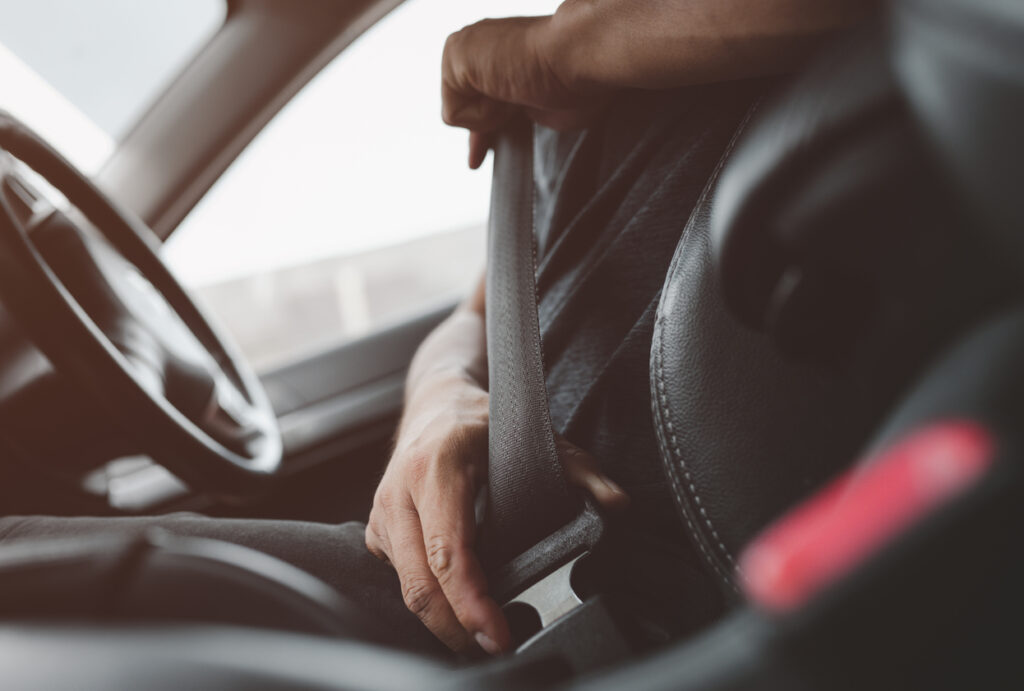Are Car Accident Settlements Affected by not Wearing a Seat Belt?

Car accidents can be devastating, causing physical injuries, emotional trauma, and financial burdens. When you’re involved in a car accident, it’s crucial to understand how various factors can affect your car accident settlement, including whether you were wearing a seatbelt.
Let’s explore the implications of not wearing a seatbelt in a car accident and how it can impact your chances of receiving fair compensation. We’ll also discuss the legal aspects of seatbelt use in Colorado and provide essential insights to help you navigate your personal injury claim successfully.
The Legal Landscape in Colorado
Before delving into the effects of not wearing a seatbelt on your car accident settlement, let’s first understand the legal framework in Colorado regarding seatbelt usage.
Colorado Revised Statute 13-21-111, also known as CRS 13-21-111, deals with the use of seatbelts in motor vehicles. It mandates that all drivers and front-seat passengers in Colorado must wear seatbelts while the vehicle is in operation. Failure to comply with this law can result in fines and penalties.
Importantly, CRS 13-21-111 contains a provision known as “comparative negligence.” This means that if you were not wearing your seatbelt at the time of the accident, and it is determined that your failure to do so contributed to your injuries, it can affect your claim. Under comparative negligence, your compensation may be reduced in proportion to your degree of fault.
Effects of Not Wearing a Seatbelt on Your Car Accident Settlement
There are several effects that occur when you’re found not wearing a seatbelt after a car accident. Here are just a few to give you an example:
Comparative Negligence
As mentioned earlier, if you were not wearing a seatbelt and it is proven that your injuries were exacerbated due to this negligence, it can impact your car accident settlement. Colorado follows a modified comparative negligence system, which means that if you are found to be less than 50% at fault for the accident, you can still recover damages, but your compensation will be reduced proportionally.
For example, if the court determines that you were 20% at fault for your injuries because you were not wearing a seatbelt, and your total damages amount to $100,000, your settlement would be reduced to $80,000.
Insurance Adjuster Negotiations
When negotiating with insurance adjusters, the fact that you were not wearing a seatbelt may be used against you. The insurance company may argue that your injuries would have been less severe or even avoided entirely if you had worn a seatbelt. This can result in lower settlement offers, making it essential to have a skilled personal injury attorney who can counter these arguments effectively.
Jury Perception
If your case goes to trial, the jury’s perception of your failure to wear a seatbelt can also affect the outcome. Jurors may view this as negligence on your part, which could potentially lead to a reduced award or even a verdict in favor of the defendant. Your attorney will need to carefully present your case to mitigate the impact of not wearing a seatbelt on the jury’s decision.
Building a Strong Personal Injury Claim
While not wearing a seatbelt can complicate your car accident settlement, it’s important to remember that every case is unique. To maximize your chances of receiving fair compensation, consider the following steps:
Seek Immediate Medical Attention
After a car accident, your health should be your top priority. Seek medical attention promptly, even if you believe your injuries are minor. A medical evaluation will document your injuries and provide crucial evidence for your claim.
Consult with a Personal Injury Attorney
Hiring an experienced personal injury attorney is crucial to navigating the legal complexities of your case. An attorney can help you build a strong claim, gather evidence, negotiate with insurance companies, and represent your interests in court if necessary.
Preserve Evidence
Document the accident scene, take photographs, collect witness statements, and keep all relevant documents, such as medical bills and police reports. This evidence will help establish liability and the extent of your injuries.
Be Cautious with Statements
Avoid making statements to insurance adjusters or other parties involved in the accident without consulting your attorney first. Anything you say could be used against you.
Understand Comparative Negligence
Familiarize yourself with Colorado’s comparative negligence law and how it may apply to your case. Your attorney will help you assess your level of fault and strategize accordingly.
Not wearing a seatbelt in a car accident can affect your car accident settlement, but it does not mean you should give up on seeking justice. With the right legal guidance and a strong case, you can still pursue fair compensation for your injuries and losses. Remember that the law is complex, and the outcome of your claim will depend on various factors.
Consulting with an experienced personal injury attorney at Hoffman Law Firm PC is the first step toward protecting your rights and securing the compensation you deserve. Don’t let the absence of a seatbelt prevent you from seeking justice after a car accident in Colorado.
